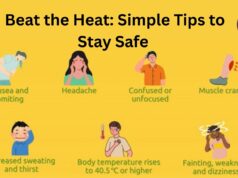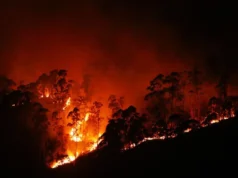Heatwaves are becoming more common and intense, affecting millions of people worldwide. Understanding heatwaves is crucial, but what exactly causes them, and how can we protect ourselves? Let’s break it down in simple terms.
What is a Heatwave?
A heatwave is a period of unusually hot weather that lasts for several days or even weeks. It happens when high-pressure systems trap warm air in one area, causing temperatures to soar. Comprehending what constitutes a heatwave is essential for understanding these extreme weather events.
Why Do Heatwaves Happen?
Heatwaves are primarily caused by climate change. As the Earth’s temperature rises, extreme weather events like heatwaves become more frequent and severe. Other factors include:
- Urbanization: Cities with lots of concrete and asphalt absorb more heat, making them hotter than rural areas.
- Weather Patterns: High-pressure systems can block cooler air, creating a “heat dome” effect.
When Do Heatwaves Occur?
Heatwaves are most common in summer, but their timing and intensity vary by region. For example:
- In the Northern Hemisphere, they often happen between June and September.
- In tropical areas, heatwaves can occur year-round. Grasping when heatwaves occur is vital for predicting and coping with these events.
How Do Heatwaves Affect Us?
Heatwaves can have serious consequences:
- Health Risks: High temperatures can cause heat exhaustion, heatstroke, and dehydration. Vulnerable groups like the elderly, children, and those with chronic illnesses are at higher risk.
- Environmental Impact: Heatwaves can lead to droughts, wildfires, and harm wildlife. Understanding heatwaves allows us to better address their environmental impacts.
- Economic Costs: Increased energy use for cooling, crop failures, and strain on healthcare systems can be costly.
How to Stay Safe During a Heatwave
Here are some simple tips to protect yourself:
- Stay Hydrated: Drink plenty of water, even if you don’t feel thirsty.
- Avoid the Sun: Stay indoors during peak heat hours (usually 10 a.m. to 4 p.m.).
- Dress Lightly: Wear loose, light-colored clothing to stay cool.
- Use Fans or AC: Keep your living space cool with fans or air conditioning.
- Check on Others: Look out for neighbors, especially the elderly or those living alone. Being aware of how to stay safe can enhance our understanding of dealing with heatwaves.
Conclusion
Heatwaves are a growing threat due to climate change, but understanding their causes and effects can help us prepare. By taking simple precautions, we can stay safe and reduce the risks associated with extreme heat. Let’s work together to understand heatwaves and adapt to these changes, protecting our planet for future generations.















